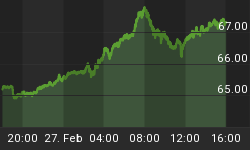From the onset of QE2 in 2010, stocks rose despite a weak economy. Investors believed that stocks would rise either because the economy would improve or because the Federal Reserve would print enough money to ensure that stocks would rise - a classic "Don't Fight The Fed" situation. In fact, Ben Bernanke opined in a Wall Street Journal editorial that a positive feedback loop would occur from a rising stock market. The positive feedback loop has not occurred, and the incoming economic data is so weak that recent communications from the Fed have even acknowledged that it has been "Pushing On A String." For example:
August 9, 2011 Federal Reserve Board Meeting Minutes Excerpts¹
...In contrast, some participants judged that none of the tools available to the Committee would likely do much to promote a faster economic recovery, either because the headwinds that the economy faced would unwind only gradually and that process could not be accelerated with monetary policy or because recent events had significantly lowered the path of potential output. Consequently, these participants thought that providing additional stimulus at this time would risk boosting inflation without providing a significant gain in output or employment.
August 26, 2011 Ben Bernanke Jackson Hole Speech²
...Notwithstanding these more positive developments, however, it is clear that the recovery from the crisis has been much less robust than we had hoped. From the latest comprehensive revisions to the national accounts as well as the most recent estimates of growth in the first half of this year, we have learned that the recession was even deeper and the recovery even weaker than we had thought; indeed, aggregate output in the United States still has not returned to the level that it attained before the crisis.
Though the Federal Reserve has already printed $600 billion, the economy has gained no traction. Economic and financial headwinds facing the economy are so strong that they have rendered monetary policy ineffective. Therefore, the global debt problem, weak economic backdrop and corporate earnings will be the primary drivers of the stock market going forward. These drivers pose tremendous risk to investors because the stock market is still nearly 100% higher than it was in March 2009. The Fed is out of bullets and the consensus view will soon be that the Fed is "Pushing On A String" should they pursue further intervention.
¹ http://www.federalreserve.gov/monetarypolicy/fomcminutes20110809.htm
² http://www.federalreserve.gov/newsevents/speech/bernanke20110826a.htm















